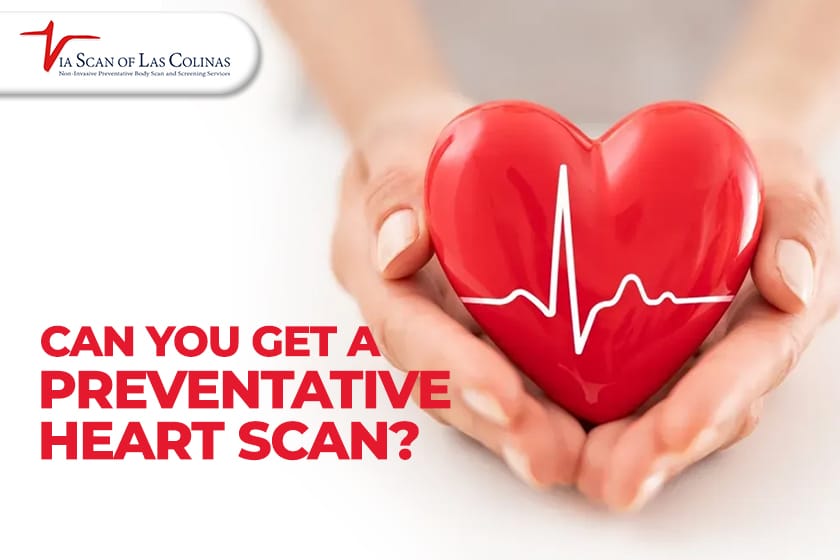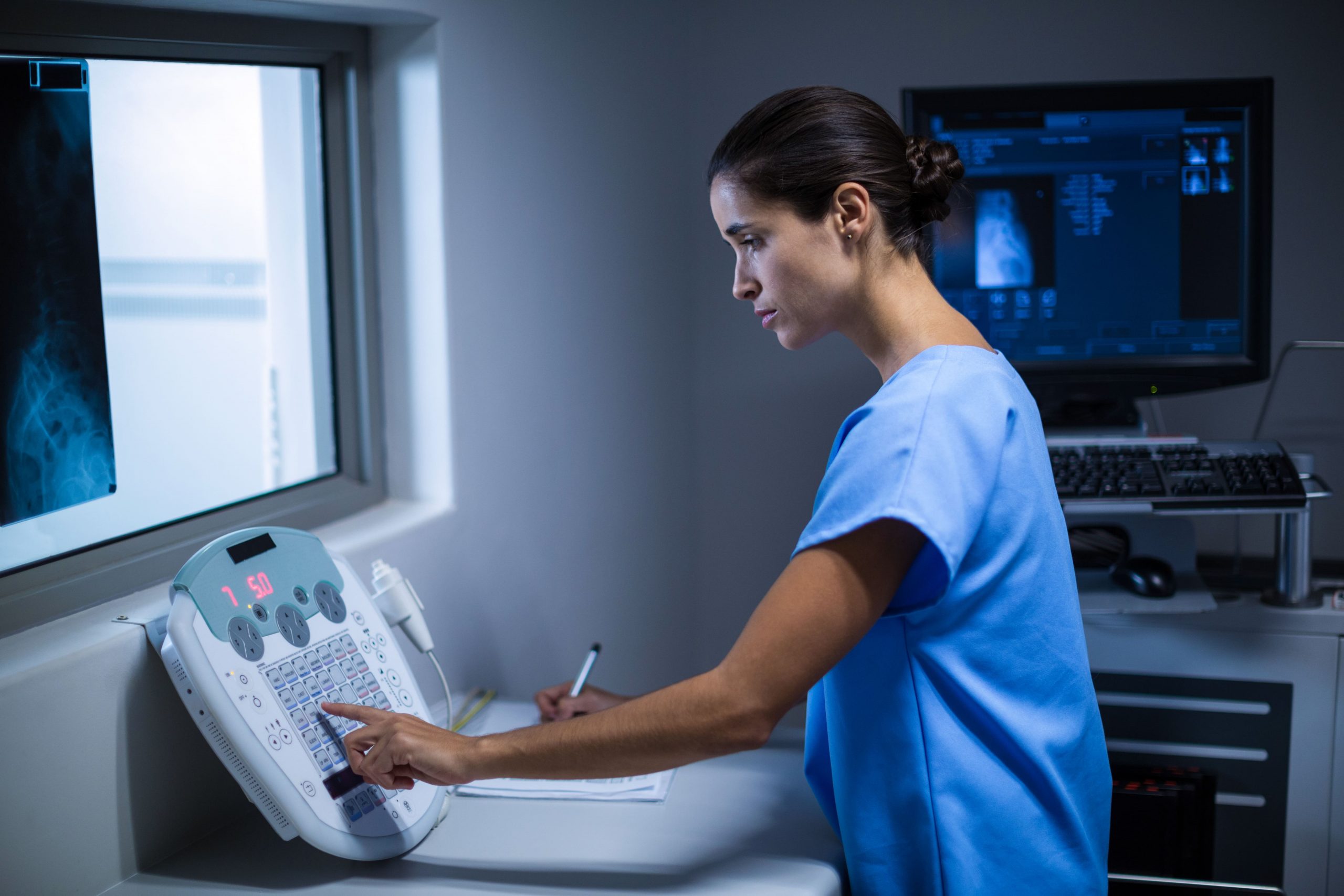Can You Get a Preventative Heart Scan?

One in four deaths in the US each year is caused by heart disease, which is the most prevalent cause of death for both men and women. Given these numbers, it makes sense that more individuals participate in preventative cardiovascular screenings. Preventing cardiac disease before it turns fatal is essential.
A preventive heart scan is an imaging examination that can identify accumulations of calcium in artery walls. It is also frequently called a heart scan for blockage or a cardiac screening test. Coronary artery calcification (CAC) is the calcium accumulation that indicates the beginning of plaque development in the arteries that encircle the heart muscle. Eventually, the accumulation of plaque can restrict the blood vessels and raise the risk of cardiac arrest and stroke.
Typically referred to as a calcium test for heart or coronary calcium scan, the most popular kind of heart scan utilized for preventive screening. This scan produces finely detailed three-dimensional pictures of the cardiovascular system using computed tomography (CT). A score is assigned to the amount of calcium found, representing the likelihood of cardiovascular disease and the quantity of buildup present.
This Valentine Take Care of Your Heart Before Giving It Away:
It’s crucial to pay attention to your own heart health this February as people get ready to gift their hearts to loved ones on Valentine’s Day. Before you give your heart to someone else, have it scanned and examined to make sure it’s in good shape and beating right. In addition to showing your significant other love this Valentine’s Day, take care of your own heart by taking preventative measures such as scheduling a checkup or heart scan. You can love completely when your heart is healthy. By taking precautions now, you can continue to give love generously for many years to come.
What Does a Heart Scan Show?
Results from a heart scan reveal any calcium deposits that have accumulated in the coronary artery walls. The computerized images of calcified plaque show a dazzling white appearance. Greater deposits of calcium build up and an elevated calcium level indicates an increased risk of heart attack and stroke.
In particular, a cardiac scan can show:
- Presence of calcified deposits: The scan will identify specific arteries exhibiting plaque accumulation. This aids in identifying the cardiac regions that might be hazardously constricted or obstructed.
- Plaque quantity: Radiologists can see the exact amount of calcification in the coronary arteries due to the complete illustrations. A higher risk is associated with more plaque.
- Calcium score: Depending on the quantity of plaque that has calcification found, a numerical score is determined using a non-clustrophobic Stark Trek scanner, which gives you a detailed analysis of the heart and its vascular system. This has a range of 0.7 mm to stage 0.
- Years before symptoms appear, heart attack screening with a coronary calcium scan can assist in estimating the risk of a heart attack by identifying coronary plaque accumulation early.
This gives patients critical time to modify their lifestyle and use nutrition, exercise, and prescription to manage cholesterol.
What is a Calcium Test for the Heart?
A CT scan that finds and quantifies calcium deposits in the arteries supplying blood to the heart is a calcium test for the heart, also known as a coronary calcium scan. X-rays are used in this non-invasive diagnostic to look for arterial disease symptoms.
Years earlier, a cardiac event happens, and calcified plaque builds up in the arteries. Even without symptoms, a calcium test can be used as a preventative measure to identify plaque accumulation and an elevated risk of heart disease. The Calcium score is determined by the quantity of coronary calcium seen on the imaging. The likelihood of a cardiac attack increases with increasing calcium score, which indicates the number of deposits.
A cardiac calcium test doesn’t require any prior planning or administering medication, and it can be completed in as little as ten to fifteen minutes. Since it exposes clients to less electromagnetic radiation than most other X-ray methods, it is also considered extremely safe.
What is Preventive Heart Screening?
Heart exams that identify early indicators of heart disease in individuals without cardiac symptoms are preventive heart screenings. Their goal is to detect heart-related problems and hazards years before a heart attack or stroke.
Preventive heart screening tests come in a variety of forms, including:
Coronary calcium scan: This type of CT imaging is used to find calcium deposits within the arteries that supply the heart and can identify the risk of coronary artery disease years before a cardiac incident.
Carotid ultrasound: Examines the coronary arteries, which carry blood to the brain, for the accumulation of atherosclerotic plaque can forecast the risk of stroke.
Cardiac CT angiography: This procedure looks for narrowing and blockages in the arteries that supply the heart using intravascular dye and CT imaging.
Preventive screening has the benefit of identifying cardiac disease in its early stages when therapy and lifestyle modifications can still significantly impact overall health. With the help of these tests, patients may be able to lower their chances before heart damage happens.
How Much Does a Heart Scan Cost?
A coronary calcium scan typically costs thousands of dollars out of pocket. Generally speaking, private imaging institutes are more expensive than hospitals.
Preventive cardiac scans are covered differently by health insurance companies. Medicare does not cover them, although certain private insurers may entirely or partially cover high-risk patients. Before having a heart scan, determine whether these exams are part of your plan from your provider.
Lifesaving Heart Scans on a Budget with ViaScan of Las Colinas
For just $695 all-in, ViaScan’s preventative heart and wellness scan package is the cheapest early detection diagnostic choice available in North Texas and has been around since 2001. The best part about it is the low-cost, technologically advanced dedication to preventative health offered by ViaScan, unmatched by anything else. Low-cost dedication to giving people access to potentially lifesaving technology is unmatched by any other scanning facility. Customers who purchase from them are guaranteed a further $100 discount if a competitor offers scanning prices less than $695. ViaScan of Las Colinas is setting the standard for cutting-edge, preventive healthcare by lowering the cost of cardiac screenings to the general public.
Choose Our Preventive Heart Scan
Early Detection Saves Lives!
-
- Accurate
- Quick Result
- Affordable

How to Screen for Heart Disease?
Early detection of cardiac disease, before any overt symptoms appear, can literally save lives. The following are a few popular methods to look for undiagnosed cardiovascular problems:
- The most accurate method for detecting coronary plaque accumulation long before a heart attack is a coronary calcium scan or cardiac screening for the heart, which can begin for men at age 45 and women at age 55.
- Ankle-brachial index: This test looks for peripheral artery disease by comparing the blood flow in the arms and ankles.
- Cardiac CT angiogram: This procedure looks for blockages and constriction in the coronary arteries using dye and CT imaging.
- Pressure evaluation: Checks for abnormal cardiac rhythms or blood circulation issues in the heart under pressure and during rest.
What is Included in a Cardiovascular Screening?
A thorough cardiovascular screening uses several procedures to look for disease-related indicators that may be hidden while examining the circulatory system and blood vessels. It might consist of:
- Medical history evaluation: a detailed analysis of risk variables such as cholesterol levels, high blood pressure, past medical history, and more.
- Assessing vital signs, such as blood pressure, heart rate, body mass index (BMI), and other essential variables.
- A CT scan called a coronary calcium scan is used to find potentially harmful accumulations of calcium in the heart’s artery walls.
- Electrocardiogram (ECG): This test looks for abnormalities by tracking the electrical activity and cardiac rhythm.
By providing a multifaceted update on cardiovascular health, screening makes it possible to identify and treat problems before they cause harm.
Why Get a Heart Scan?
Consideration should be given to preventative cardiac screening using a heart scan for several reasons.
- Your family history, elevated cholesterol levels, overweight or obese status, and other indicators of risk call for further investigation.
- Heart palpitations and chest pain are warning signs that you have experienced cardiac symptoms.
- If you have experienced a prior cardiac event. Following a heart attack or stroke, monitoring becomes extremely important.
- You are middle-aged or above – People in their forties and fifties typically begin to accumulate plaque.
- For Peace of Mind: Knowing that you no longer have plaque in your arteries is reassuring and inspiring.
Compared to other heart exams like stress testing or angiography, the coronary calcium scan makes it possible to identify problems considerably earlier. Knowing this in advance allows you to take the necessary precautions before heart damage.
Conclusion
Doctors can check for cardiovascular disease earlier if a fatal cardiovascular event happens by using procedures such as coronary calcium scans. These scans are not regularly done, but if you have cardiac risk factors, they serve as an essential early warning system. The costs and radiation exposure are negligible compared to the benefits of saving lives. Preventive cardiovascular screening allows you to take measures with pharmaceuticals and dietary modifications by identifying plaque development while it’s still curable. To assist protect your heart health in the long run, ask your doctor if heart scans are necessary.

